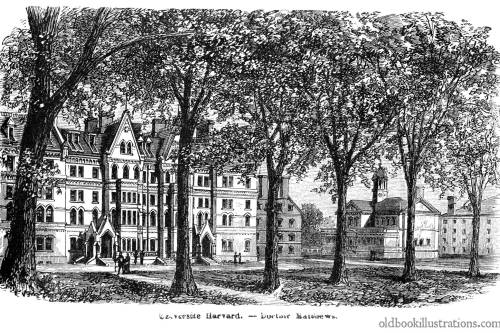Today’s Guest Writer is: Mark A. Korodan
Has religion been a hindrance or a help in the various fields of science? Or, in the pursuit of knowledge and truth, are science and religion mutually exclusive? There are some, e.g. Andrew Dickson White (co-founder of Cornell University along with Ezra Cornell) who were of the opinion that science and religion have historically been in conflict. On the other hand, there are those such as Herman Bavinck, a Dutch theologian, who believe the knowledge of God, as revealed in His Word, is profitable for instruction in truth, and does not hinder, but rather advances scientific study and research.
To answer the above question, I will discuss several colleges founded in North America before the United States became a sovereign nation, save one. This collection of schools constitute the “Ivy League”; here league is used as a term beyond the sports context. I will also include the College of William and Mary in this discussion. This group represents some of the most elite colleges and universities in the world. Academic excellence, selectivity in admissions, and a noteworthy legacy are a common theme with these schools. The institution, founding date, and the group or individuals involved in the founding will be cited.

Harvard University, regarded by many as one of the foremost institutions of higher learning in the history of mankind, was founded in what would become Cambridge, MA, in 1636. Calvinist Congregationalists and Puritans constituted the majority of the individuals involved in its founding. Harvard’s motto “Veritas”, the Latin word for truth, is one of the single most meaningful words in science and religion. Many of the founders and original faculty were Cambridge University alumni, and therefore, it is no small coincidence that the town originally known as Newtowne (where Harvard began) was changed to Cambridge. The namesake of the university, John Harvard (1607-1638), was a Puritan clergyman and the original benefactor of the institution.

The College of William and Mary was founded by James Blair in 1693, Williamsburg, VA. Blair was a clergyman, missionary, and educator associated with the Church of England. In addition to providing continuing education to the colonists, Native Americans were also included as some of the first students. Yale University, founded in 1701, New Haven, CT, by Calvinist Congregationalists, chose Hebrew and Latin for the languages of its motto, “Urim and Thummim” (the English translation of the Hebrew), and in Latin “Lux et Veritas”, Light and Truth. Princeton University was founded in 1746, Princeton, NJ, by Calvinist Presbyterians. Princeton’s motto is “Under God’s Power She Flourishes”, and on the official seal is an open Bible.
Columbia University was founded in 1754 by Church of England clergymen. Columbia’s motto is “In Thy (i.e. God’s) Light Shall We See Light.” The University of Pennsylvania was founded in 1740, Philadelphia, PA, by Benjamin Franklin, members of the Church of England, and Methodists. U. of Pennsylvania’s motto is “Laws Without Morals are Useless.” Brown University was founded in 1764, Providence, RI, by Baptist and Congregational church members. James Manning, a Baptist minister, educator, and legislator was the first president of Brown U. Brown’s motto is “In God We Hope.” Dartmouth College was founded in 1769 by Calvinist Congregationalists in Hanover, NH. Dartmouth’s motto is “A Voice Crying Out in the Wilderness” (Mark 1:3, Is 40:3).
Cornell University founded in 1865, is the only self-designated secular institution in the Ivy League, and the only one founded after 1783. Andrew Dickson White, an adherent of the “conflict thesis”, which states science and religion have historically been in conflict, was a co-founder of the university along with Ezra Cornell. Cornell made this statement concerning the establishment of the university: “I would found an institution where any person can find instruction in any study”. This became the schools official motto. Many of the early faculty at Cornell were graduates of Ivy League schools.

The relationship between science/knowledge and religion lasted for more than 200 years with historic, indisputable results. In many ways the Ivy League set the standard for future universities such as the University of Michigan, which was founded in 1817 as a group of three cooperating private schools located in Detroit, Monroe, and Mackinaw. Their first classes were held in Ann Arbor in 1841. The first faculty consisted of the Rev. George P. Williams, professor of mathematics, and the Rev. Joseph Whiting, professor of languages. The word reverend is used here as a title of respect given to Christian clergy and ministers who had completed an extensive course of study in the sciences, including a minimum of three foreign languages. These men, because of their training and abilities, were at the upper end of the intellectual spectrum.
Only by looking through the lens of secular philosophy can one understand why the U. of Michigan, on the school history page, has chosen to leave the “Rev.” off the names of these two eminent professors. In an attempt to rewrite history, some describe these early institutions as primarily “seminaries”, where only clergy were educated for the ministry. This is a subtle attempt to make the early schools appear less scholarly than the latter, more secular universities. The implication being, you can’t educate serious and objective scientists in a milieu of religion. Nothing could be further from the truth. Today universities have devolved into the training of technicians for a particular vocation, rather than educating students to think logically, solve problems, and prepare them to be successful in any career path they so choose. This “vocational” training is what necessitates offering dozens of majors at most universities today.
